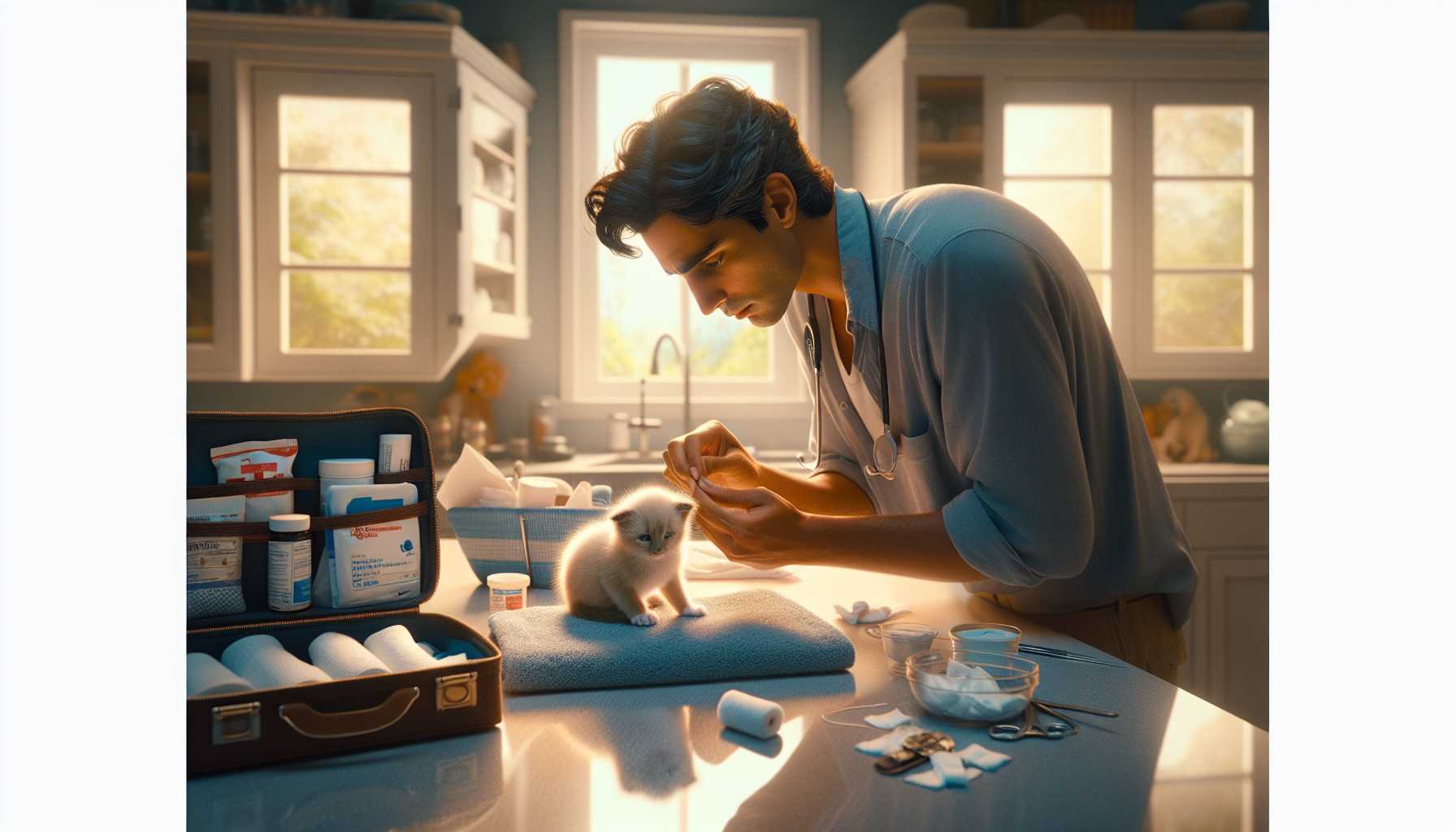Emergency Kitten Care: First Aid Essentials

Essential First Aid for Emergency Kitten Care
It's an undeniable fact – our little, furry companions can encounter mishaps at any time! Being a responsible pet owner means knowing how to respond during kitten emergencies. This guide is designed to equip you with the necessary skills for those anxiety-inducing moments.
Assembling a First Aid Kit for Your Kitten
Just as humans have first aid kits, your kitten requires one as well! Here are some items you should consider including: - Sterile gauze pads and bandages - Antiseptic wipes that are safe for pets - Saline solution for eye care - A digital thermometer - A small towel or blanket - Approprite tools for removing ticks and fleas that are safe for pets - Emergency contact numbers
Typical Kitten Emergencies and How to Handle Them
Difficulty Breathing
If you observe that your kitten is having trouble breathing, remain calm! Keep your kitten upright and loosen any snug collars. Immediately proceed to the vet as time is of the essence!
Choking
If you notice your kitten continuously pawing at its mouth, it may be choking. However, you should never stick your fingers in its mouth. Instead, firmly hold your kitten with its head pointed downwards and give smooth back pats between its shoulder blades.
Minor Wounds and Scratches
Our adventurous little felines sometimes end up with minor wounds! Rinse the wound with lukewarm water and gently pat dry. Apply antiseptic that is safe for pets and prevent your kitten from licking the area.
Situations That Require Immediate Professional Assistance
Some situations require prompt attention from a professional: - Severe blood loss - Possible poisoning - High body temperature (above 103°F) - Extreme tiredness - Refusing to eat for over 24 hours - Any form of trauma or injury
Tips for Preventive Measures
Prevention is the best form of care! Here are some simple ways to safeguard your kitten: - Make your house safe for kittens - Keep poisonous plants out of their reach - Ensure window screens are secure - Safely store medications - Keep small objects out of sight
Compiling an Emergency Contact List
Here are some useful contacts that you should keep readily available: - Your regular veterinarian - The closest 24-hour emergency clinic - Animal Poison Control Center - Local animal emergency service
Don't forget, you're not alone on this journey! Store these contacts in your phone and place a printed copy on your refrigerator for easy access.
Always trust your gut feeling. If something seems off with your kitten, it's always advisable to err on the side of caution.